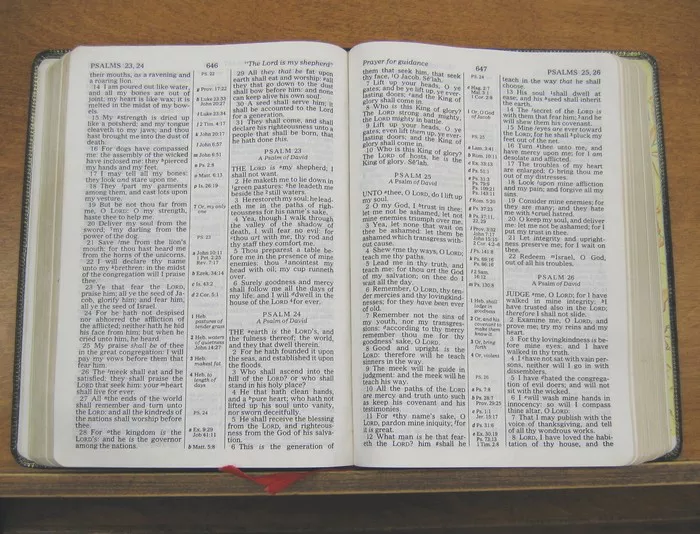Genesis 30 is a pivotal chapter in the book of Genesis, containing intricate narratives and profound theological themes. This chapter primarily deals with the family dynamics of Jacob, focusing on the birth of his sons and the ensuing rivalry between his two wives, Leah and Rachel. To understand Genesis 30 comprehensively, it’s essential to delve into the historical context, the key events described, and the theological implications of these events.
Historical Context
Genesis 30 is set in the context of the ancient Near Eastern world, where family lineage and inheritance played crucial roles in societal structure. Jacob, the grandson of Abraham, is a central figure in the narrative of Genesis. Having fled from his brother Esau‘s wrath, Jacob resides with his uncle Laban. Jacob’s relationship with Laban and his marriages to Leah and Rachel are key backdrops to the events in Genesis 30.
Jacob’s Marriages
Jacob’s marriages to Leah and Rachel were marked by deceit and rivalry. Laban tricked Jacob into marrying Leah first, despite Jacob’s love for Rachel. This deception set the stage for a tumultuous family dynamic, as Jacob worked an additional seven years to marry Rachel. The ensuing rivalry between Leah and Rachel is central to the events in Genesis 30, as both women vie for Jacob’s affection and the honor of bearing his children.
Key Events in Genesis 30
The Birth of Jacob’s Children
The chapter begins with Rachel’s anguish over her barrenness and her plea to Jacob, “Give me children, or I’ll die!” (Genesis 30:1, NIV). Jacob’s response highlights the human limitation in matters of fertility, “Am I in the place of God, who has kept you from having children?” (Genesis 30:2, NIV). This interaction underscores the belief that God is the ultimate giver of life.
To cope with her barrenness, Rachel gives her maidservant Bilhah to Jacob as a surrogate, a common practice in ancient times. Bilhah bears two sons, Dan and Naphtali, on Rachel’s behalf. Leah, not to be outdone, gives her maidservant Zilpah to Jacob, resulting in the birth of Gad and Asher.
This competitive birthing continues as Leah, who had already borne four sons, bears two more sons, Issachar and Zebulun, and a daughter, Dinah. Finally, God remembers Rachel, enabling her to conceive and bear Joseph, a significant figure in later chapters of Genesis.
The Mandrakes Incident
An interesting and somewhat enigmatic event in Genesis 30 is the mandrakes incident. Reuben, Leah’s eldest son, finds mandrakes in the field and brings them to his mother. Rachel, believing in the mandrakes’ supposed fertility-inducing properties, requests them from Leah. Leah’s response reveals the deep-seated rivalry, “Wasn’t it enough that you took away my husband? Will you take my son’s mandrakes too?” (Genesis 30:15, NIV). Rachel’s willingness to trade a night with Jacob for the mandrakes underscores the desperation and complexity of their relationship.
Jacob’s Prosperity
The latter part of Genesis 30 shifts focus to Jacob’s dealings with Laban. Jacob, desiring to establish his own household, negotiates a new wage agreement with Laban, whereby he would receive the speckled and spotted livestock. Using a clever breeding strategy, Jacob ensures that the strongest animals are born speckled or spotted, thus increasing his wealth significantly. This narrative highlights Jacob’s ingenuity and God’s blessing upon him, as Jacob himself acknowledges, “The God of my father has been with me” (Genesis 31:5, NIV).
Theological Implications
God’s Sovereignty and Human Agency
A recurring theme in Genesis 30 is the interplay between divine sovereignty and human agency. The birth of Jacob’s children, despite the human schemes and rivalries, ultimately points to God’s sovereign plan. Rachel’s eventual conception of Joseph after years of barrenness emphasizes that God’s timing and purposes prevail over human efforts.
See Also: Why Did Ruth Uncover Boaz’s Feet?
The Role of Women
Genesis 30 provides a complex portrayal of women’s roles in the biblical narrative. Leah and Rachel’s rivalry and their use of maidservants reflect the societal norms of their time. However, their persistent desire for children also highlights their active participation in God’s covenantal promises. Despite the cultural limitations, these women are integral to the fulfillment of God’s promises to Abraham’s descendants.
Blessing and Prosperity
Jacob’s prosperity in the latter part of Genesis 30 underscores the theme of blessing. Despite the deceit and manipulation he faced, God’s favor upon Jacob is evident. This prosperity is not merely material but signifies God’s faithfulness to His covenant promises. Jacob’s acknowledgment of God’s role in his success reiterates the biblical theme that true prosperity is rooted in divine blessing.
Conclusion
Genesis 30 is a rich tapestry of human emotions, divine intervention, and covenantal faithfulness. The chapter’s narratives highlight the complexities of family relationships, the struggles for identity and blessing, and the overarching sovereignty of God in the lives of His chosen people. Through the births of Jacob’s sons and his prosperity, Genesis 30 advances the broader biblical theme of God’s unfolding plan for His people, setting the stage for the subsequent narratives of the patriarchs and the nation of Israel.


